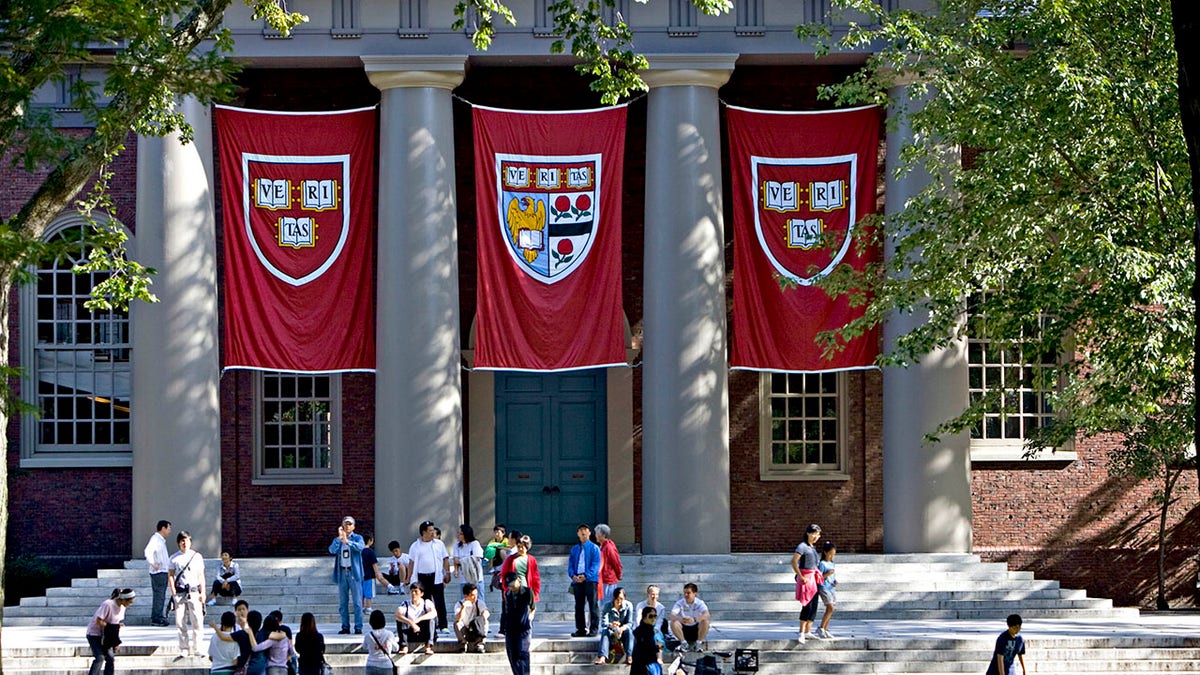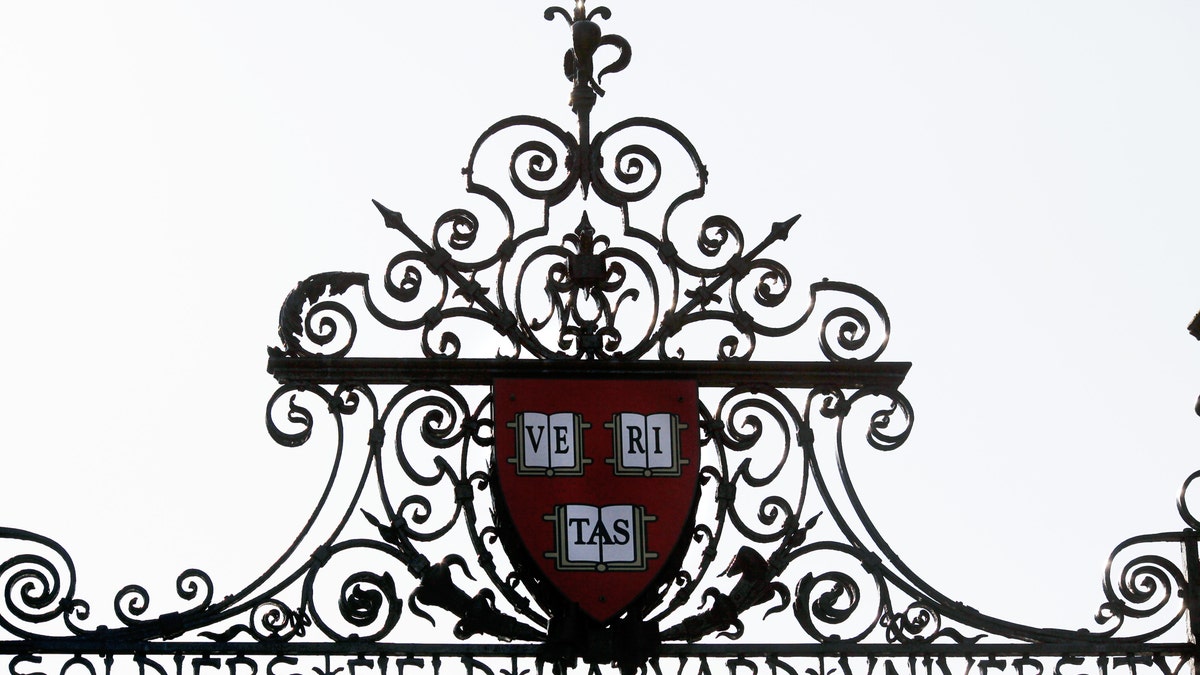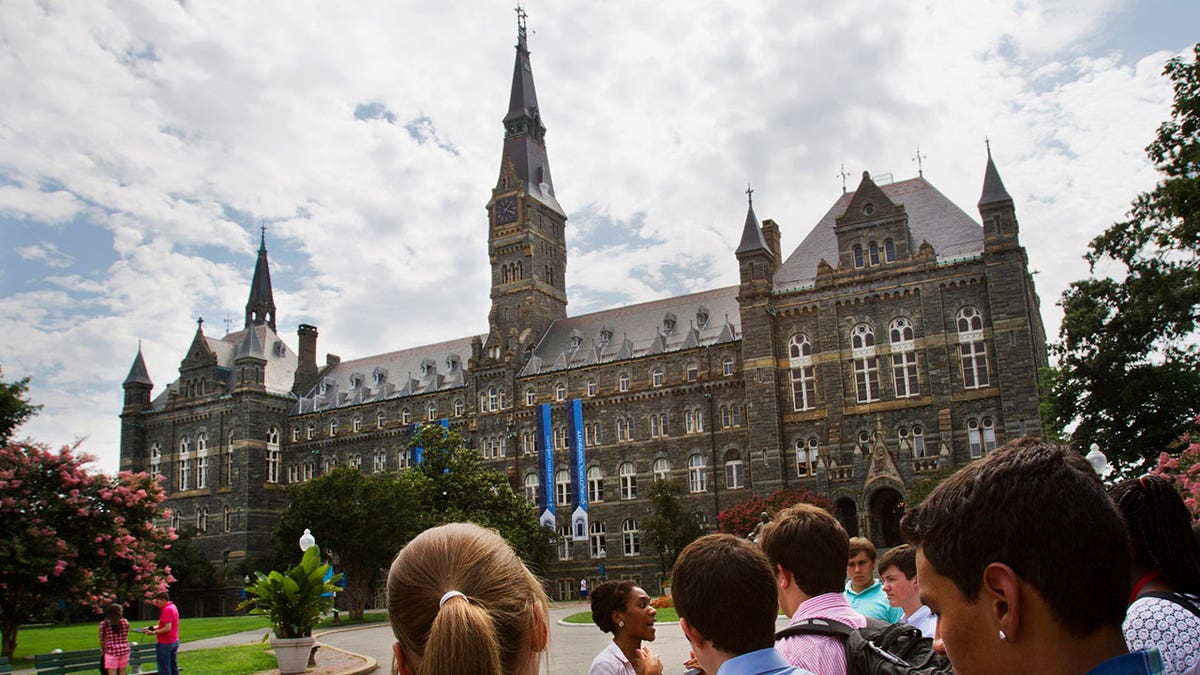Fox News Flash top headlines for August 4
Fox News Flash top headlines are here. Check out what's clicking on Foxnews.com.
The U.S. Supreme Court announced it would hear one of two cases on Oct. 31 that could dismantle the 40-year precedent of race-based affirmative action in university admissions, with universities now urging the court to preserve the decision despite some expert opinion to the contrary.
Students for Fair Admissions Inc. (SFFA) v. President & Fellows of Harvard College is one of two cases to come before the Supreme Court urging it to eliminate race as an admissions factor and, as a result, overturn the precedent case, Grutter v. Bollinger. The case also seeks to answer whether Harvard College violated Title VI of the Civil Rights Act through its alleged discrimination against Asian American students, stemming from the initial lawsuit.
"It's very clear to me that Harvard University was engaging in blatant discrimination. And what they were doing was they did not like the fact that Asian Americans — if they were simply admitted based on their credentials, qualifications — would have such a huge percentage of the student body," Hans von Spakovsky, a senior legal fellow at the Heritage Foundation, told Fox News Digital.
SFFA initially sued Harvard College in 2014 for violating Title VI of the Civil Rights Act, which "prohibits discrimination on the basis of race, color, or national origin in any program or activity that receives Federal funds or other Federal financial assistance." Despite lower court rulings siding with SFFA, a Boston district court ruled in Harvard's favor in 2019, stating that the evidence against Harvard was inconclusive and "the observed discrimination" affected only a small pool of Asian American students. It ruled that SFFA did not have standing in the case.
PARENTS PUSH BACK ON AMERICAN COLLEGES PROMOTING DEI INITIATIVES: 'DEI IS DANGEROUS'
SFFA appealed the case to the First Circuit Court of Appeals, where the court ruled in favor of Harvard once again. The circuit court ruled that SFFA did have standing but that Harvard's admissions program satisfied strict scrutiny "because it does not penalize Asian Americans, engage in racial balancing, overuse race, or neglect race-neutral alternatives."
"Harvard and the University of North Carolina have racially gerrymandered their freshman classes in order to achieve prescribed racial quotas. Every college applicant should be judged as a unique individual, not as some representative of a racial or ethnic group," SFFA President Edward Blum said in a statement.
However, some experts and the writ of certiorari filed by SFFA argue that Harvard's discrimination stems from the university's initial admittance of Jewish students in the early 1920s.

Harvard banners hang outside Memorial Church on the university's campus in Cambridge, Massachusetts, on Sept. 4, 2009. (Michael Fein/Bloomberg via Getty Images)
"Harvard thus created a holistic admissions system to ‘reduce the number of Jews.’ Instead of test scores alone, Harvard placed ‘greater emphasis’ on ‘character,’ ‘fitness,’ and other subjective criteria," the court document read.
Von Spakovsky said Harvard is now implementing that same "Harvard Plan" in the university's admittance of Asian American students.
"Asian American students with high grades, high test scores, lots of extracurricular activities were all consistently being rated by admissions officers as having not good characters, not having the fitness needed for a Harvard student. So they were using that kind of subjective evaluation to lower their admissions policy. I can't think of anything more racist than that," von Spakovsky said.
UCLA PROFESSOR QUITS JOB, SAYS 'WOKE TAKEOVER' OF EDUCATION 'INTELLECTUALLY CORRUPT'
SFFA is now asking the U.S. Supreme Court to overturn the precedent case, Grutter v. Bollinger, and eliminate race-based affirmative action in admissions entirely. The 2003 case sought to answer whether racial preferences in student admissions violated the Equal Protection Clause of the 14th Amendment or Title VI of the Civil Rights Act.
In 2003, the court ultimately ruled that the use of race as an admissions factor was not unconstitutional as long as it was narrowly tailored to further the compelling interests of obtaining the educational benefits available in a diverse student body.
"I think the court has gotten it exactly right for the last 45 years," Erwin Chemerinsky, dean of the UC Berkeley School of Law, told Fox News Digital. "Colleges and universities have a compelling interest in having a diverse student body and should be able to use race as one factor among many in admissions decisions."
Overturning Grutter "would be the most dramatic, most far-reaching decision the court could arrive at," Rachel Moran, professor of law at UCI Law, told Fox News Digital. "So, under that approach, the court would say that they don't believe that under the First Amendment, academic freedom has any special stature. And because diversity is an expression of the college or university's freedom to compose its student body, that doesn't carry any special weight."
However, von Spakovsky said the Grutter decision was made with the hopes it would be a temporary fix, per Justice Sandra Day O'Connor.
"What she said back then was, ‘Hopefully 25 years from now, this will no longer be necessary, even allowing limited racial preferences.’ Well, we're two decades later. And it's time to end it," said von Spakovsky.

Harvard's seal sits atop a gate to the university's athletic fields in Cambridge, Massachusetts, on Sept. 21, 2009. (Reuters/Brian Snyder)
Harvard University has maintained that it has not discriminated in its admissions process whatsoever, arguing that SFFA failed to prove its argument per lower court rulings. Harvard states in its opposition filing to SFFA's writ of certiorari that "the educational benefits of a diverse student body is a compelling interest," per rulings such as Grutter.
"Considering race as one factor among many in admissions decisions produces a more diverse student body which strengthens the learning environment for all. The US Solicitor General rightfully recognized that neither the district court’s factual findings, nor the court of appeals’ application of the Supreme Court’s precedents to those findings, warrants further review," Harvard President Lawrence Bacow said in a statement.
HARVARD UNIVERSITY STUDENT SURVEY FINDS TINY PERCENTAGE OF FACULTY LEAN CONSERVATIVE
Harvard also states that lower court rulings in which the Grutter decision was applied found no discrimination against Asian American students, as argued by SFFA. The university cites two other affirmative action precedent cases — Regents of the University of California v. Bakke and Fisher v. University of Texas — which, Harvard argues, have generated plenty of reliance interests over the 40 years that race-based affirmative action has been in play.
"I'm sure if the court reverses the lower court decisions, there will be a dissent arguing that they should have upheld the decisions. So, it could be a fragmented court, but the majority might be split between people who say diversity is not compelling and people who say, ‘Wait, we still want to recognize that it’s compelling, but we don't believe Harvard or North Carolina offered sufficient evidence that the programs were necessary,'" Moran said.
On Aug. 1, 56 Catholic colleges and universities, including Georgetown, Notre Dame and Boston College submitted an amicus brief in support of Harvard University, urging the court to preserve race as an admissions factor.

Prospective students tour Georgetown University's campus in Washington, D.C., on July 10, 2013. (AP Photo/Jacquelyn Martin, File)
"Like many secular colleges and universities, many Catholic colleges and universities consider race as one factor in their individualized review of student applications. They do so in order to advance their academic mission by exposing students to diverse backgrounds in their classes and extracurricular activities and by producing diverse classes of graduates to serve as future leaders in the Nation’s government, business, nonprofit and education sectors," the brief reads.
However, no matter which side of the aisle constitutional law experts stand, both sides agree the likelihood of the court overturning the precedent case is high.
"I very much hope that the court does not overrule Bakke, Grutter, and Fisher, but I fear it will," Chemerinsky said.
"I think Grutter was wrongly decided. And, you know, membership of the court has changed significantly since the case was decided. And I think this new court has no sympathy for using race in any way," John Yoo, Emanuel S. Heller Professor of Law at UC Berkeley, told Fox News Digital.
Even if the Supreme Court were to side with SFFA, von Spakovsky says race-based admissions won't be completely eliminated as a result of the court's decision.
CLICK HERE TO GET THE FOX NEWS APP
"[Universities] will continue to try to do this and find some way around the statute. So, while I hope the Supreme Court does the right thing, even if they do the right thing, I think there's going to be a long road of more lawsuits down the road to stop specific schools from engaging in this kind of wrongful behavior," von Spakovsky said.
Moran also expects that such a ruling would undoubtedly affect universities' and colleges' authority as educational institutions, specifically when it comes to curriculum.
"If the court said that diversity is not a compelling interest, the first thing to bear in mind is that because they likely said academic freedom is not a constitutionally protected interest under the First Amendment, at least in so far as it relates to institutional autonomy to select the student body, that means that you will greatly weaken the autonomy of colleges and universities, not only with respect to admissions, but with respect to other things like curriculum," Moran said.
The Supreme Court released its October/November calendar on Aug. 3, announcing that both Students for Fair Admissions v. President and Fellows of Harvard College and Students for Fair Admissions v. University of North Carolina will be heard on Oct. 31.
Justice Ketanji Brown Jackson said she will recuse herself from the Harvard case given her completing her term on the Harvard Board of Overseers in spring 2022.





















